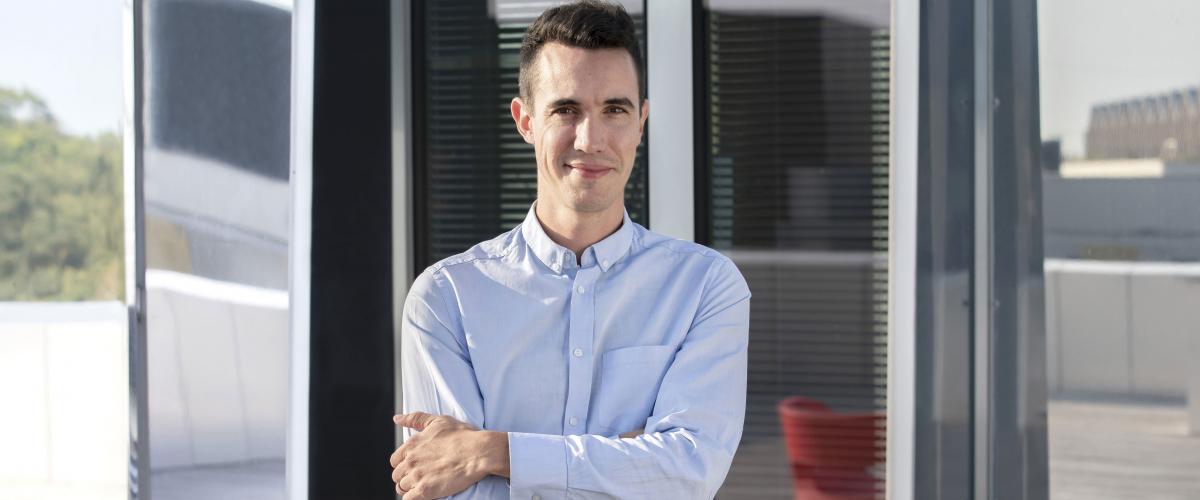On October 6, the "Images & Networks" division is putting responsible digital technology under the spotlight of debate at a technoconference in Nantes, France. On this occasion, we interviewed our speaker Martin Ragot, a researcher in cognitive sciences and head of prospective projects at b<>com.
Hi Martin, can you shed some light on what “responsible digital technology” means?
Several definitions are possible, but we can say that responsible digital technology is a standard for actions and a continuous improvement process that pursues two objectives: Reducing its own environmental, social, and economic footprint, while at the same time creating value in these same three areas. Although essential to continue raising awareness, the emergence of this concept has made it easier to understand that the digital world is in a sense real, anchored in eminently physical, social, cultural, and even geopolitical realities. In a way, responsible digital technology is the digital version of the main principles of Corporate Social Responsibility (CSR). It allows us to understand that it is not without consequences and that it can serve virtuous objectives.
How far have France and Europe gotten on the subject?
Within the scientific community, most of the research around digital responsibility seeks to reduce the energy footprint of the sector and the technologies deployed. At the social level, more and more studies are being carried out to better understand the impact of digital technology on our lives and to project a more holistic vision of innovation. Numerous subjects are being addressed, such as accessibility, digital inclusion, control, effects on learning, addictions, well-being, different lifestyles, etc. Forward-looking work is also being carried out by major French, European and international organizations. They present scenarios with broad time horizons from 2030 to 2100 that focus on the role of digital technology in tomorrow's world from an environmental, economic, and societal perspective.
In fact, we can see that organizations and companies seem to be taking digital responsibility more and more seriously by setting up best practices in eco-design, training to support and raise awareness among their employees, etc. Regions and cities are also taking an interest in the issue of digital responsibility, as evidenced by the charter recently signed by Rennes Métropole. At the European level, the lines are also gradually moving, with the implementation of the European Green Deal to shape a world in which digital technologies are used to build a healthier and greener society.
All of these elements point to a growing interest in the impact of digital technology. Reducing the digital footprint on the environment, society or economy appears to be a key issue at all levels: Scientific, organizational or governmental.
How is the subject addressed in your work?
I believe that it is more important than ever to reverse the paradigm, by addressing environmental and societal issues in our research projects in a deep way from the outset. Technology is only worthwhile if it allows us to tackle the major societal challenges of tomorrow, and responsible innovation allows us to collectively question our future needs and uses.
I am currently overseeing the <echos> project, which aims to study, in a forward-thinking and multidisciplinary way, how to shape Responsible Digital Technology by 2040. This project involves technology specialists, designers, and researchers in Human and Social Sciences. Skills in cognitive science, psychology, sociology, philosophy, behavioral economics, management and law are shared in order to build responsible digital futures together. Several b<>com investor members are contributing to it*. We are also receiving support from the Design Fiction collective Imprudence.
What does forward thinking add to responsible digital technology?
Our project does not aim, in the short term, to develop new technologies, but rather to map out possible futures, where digital is involved. Several objectives are being pursued.
The first is to understand, by defining the concepts associated with digital responsibility and studying how it is represented in society. How is it perceived? What does the notion of digital sobriety represent and what's standing in the way? How can we facilitate the adoption of sober habits? We attempt to answer these questions through experimental studies and large-scale surveys.
Secondly, to build and evaluate, through the development of new tools and methodologies to facilitate the engagement of collaborators and end-users in a more responsible digital environment. This also requires self-reflection: How can we integrate these major issues of tomorrow into b<>com? How can we help research to think differently and anticipate its own impacts? Our designers are creating ideation tools to facilitate the integration of sustainable development issues from the very beginning of our projects. Evaluation tools as well, in order to analyze the impacts that digital technology can have on companies and to better evaluate our research.
Finally, to look forward, by imagining, designing and concretely representing these responsible digital futures out to 2040. Science fiction literature or movies generally show extreme visions, with technological excess at one end, and a form of environmental apocalypse on the other. Within the project, we try to show that other worlds are possible; realistic and probable ones, incorporating certain major constraints involving the issues that lie ahead, of course, but desirable ones as well, where b<>com and its partners can play an essential role.
We cannot predict a single future, but it is possible to map a set of probable futures. To do this, b<>com researchers from several expertises, work in partnership with the collective Imprudence. Four main scenarios emerged, represented in a dozen artifacts. These artifacts can be new digital uses, products, services, or practices that could become reality by 2040. This allows us to embody these scenarios and make them tangible in order to get stakeholders and future end users involved in the here and now. The idea is to co-construct future technological possibilities, in line with tomorrow's environmental and social challenges, and to do so as early as possible.
*Footnote: Orange, Rennes 1 University, Rennes School of Business, IMT Atlantique.



